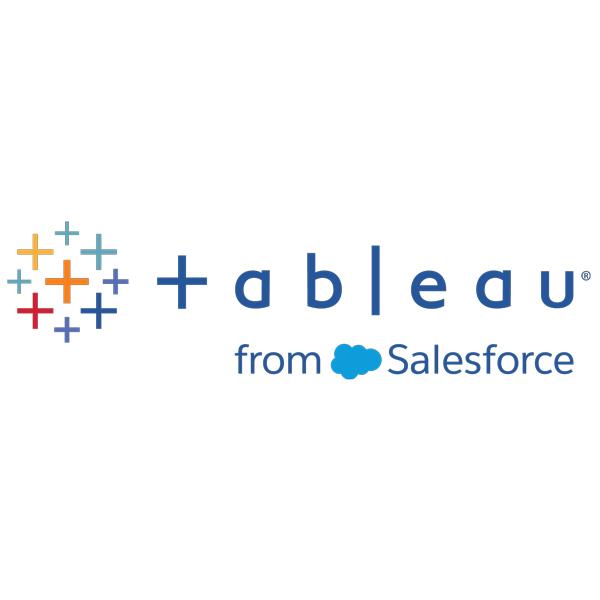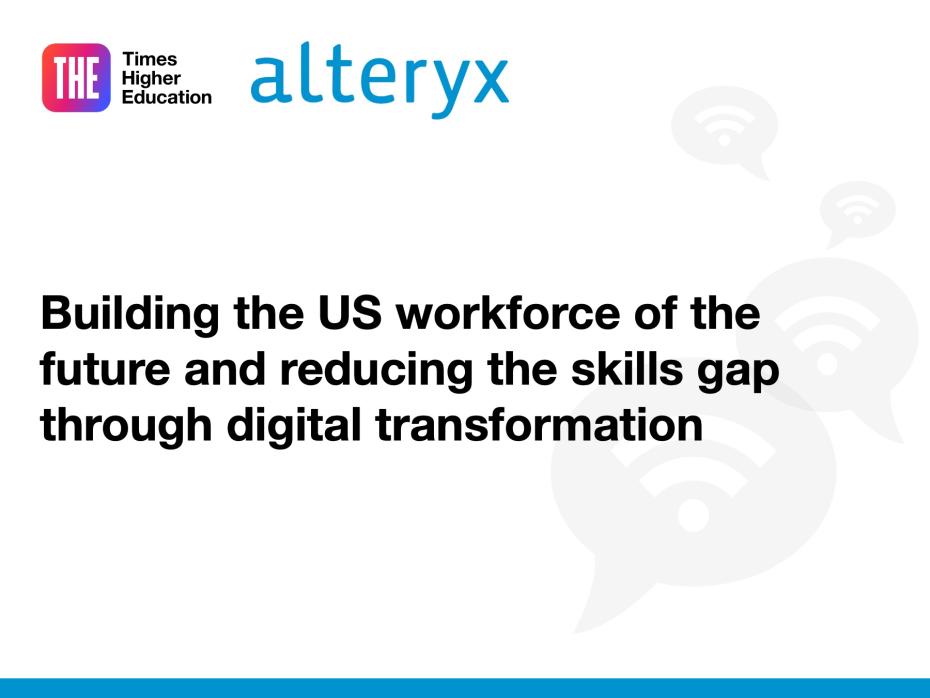
Equipping students with data skills to navigate an AI-driven world
The growing influence of artificial intelligence (AI) on the job market demands that institutions examine their approach to skill development. Incorporating data skills into the curriculum is fundamental in preparing graduates to navigate workplaces increasingly shaped by AI. A Times Higher Education webinar, held in collaboration with Tableau, featured a panel of experts who discussed the importance of data skills and data literacy in an AI-driven world.
“Data underpins all of the large language models. But data is full of bias,” said Andy Cotgreave, senior data evangelist at Tableau. “Understanding how the quality of the data going into the large language model will impact the quality of the output is absolutely vital. The social aspect of data collection, labelling, querying and presentation are fundamental things we talk about at Tableau as skills people will need.”
Data has enabled processes such as forecasting, simulation and automation in business, and these processes have to be supported by large amounts of data, said Rachel Wang, senior lecturer in business and data analytics at Oxford Brookes Business School. “So the data skills students will need in order to do these in their work has become more important,” she said. The growing employer demand for data skills is also reflected in the uptick in enrolment in data programmes around the world.
Essential data skills for today’s graduates
“In the US, the outlook for AI jobs is huge,” said Mary Dunaway, assistant professor of information science and systems at Morgan State University. “In these AI jobs, we are not seeking to replace current jobs but to improve the workplace with the information that we are able to gain from AI.”
“What we are looking at is an AI-enabled world,” said Ifeoma Ajunwa, Asa Griggs Candler professor of law at Emory University School of Law. “No matter what profession or vocation students choose, they will have to contend with AI processes and also the data needed to manage these processes.”
Essential data skills today include knowing how to read, understand, interpret and critically analyse data, how to draw conclusions from data and communicate data effectively, said Wang. Prompt engineering is an important skill that students will need to have in the age of AI, Dunaway added. This involves being able to ask the right questions and get the right answers from AI tools. “This a challenge in terms of diversity and equal access because you need to be good at the English language,” said Cotgreave.
However, employers continue to recommend soft skills such as analytical judgement and emotional intelligence as relevant skills. “It’s not only about having the technical skills but also the higher-order soft skills of understanding what is appropriate to do with the data,” said Ajunwa. “Classes that combine data ethics with data proficiency are critical because that is how students will learn how to manage data effectively.”
Promoting data literacy across disciplines
Data literacy and data fluency are important skills in the context of AI, and this has relevance across all disciplines today. “You can create qualitative and quantitative datasets about anything,” said Cotgreave.
Ajunwa emphasised the significance of recognising data skills as an important educational component, starting at undergraduate level. “An issue that I see in a lot of higher education institutions is a tendency to see data analytics and data competency as an add-on,” she said.
Addressing resource gaps at institutions
Many institutions lack the infrastructure and resources needed to keep pace with the advancements in technology and AI. “In higher education, there is a lot we need to do to embrace the data-driven society we are entering,” said Wang. Many members of the workforce in higher education grew up before the age of AI, she added. “We first need to reskill or upskill to catch up with some of the latest advancements in this area.” Wang added that integrating data skills into academic programmes can be done by personalising the curriculum based on students’ level of understanding of data.
Working with industry to foster data skills
Tableau has created an academic programme that allows students and academics to take advantage of its tools. “There are many companies that are democratising their software. For example, Tableau has many ready-made curriculums that you can plug into your learning management systems,” said Dunaway. “What I like about Tableau for Teaching is that you can plug and play and use what you need to deliver the objectives of your course and enhance students’ knowledge about AI.”
Experiential activities that involve working with data to address real-world problems are crucial, said Ajunwa. “[Institutions need to] build technical skills, make sure that the tools are in students’ hands and encourage them to critique the data they find,” said Cotgreave.
The panel:
- Ifeoma Ajunwa, Asa Griggs Candler professor of law, Emory University School of Law
- Andy Cotgreave, senior data evangelist, Tableau
- Mary Dunaway, assistant professor of information science and systems, Morgan State University
- Sreethu Sajeev, deputy editor for branded content, Times Higher Education (chair)
- Rachel Wang, senior lecturer in business and data analytics, Oxford Brookes Business School
Watch the webinar on demand above or on the THE Connect YouTube channel.
Find out more about Tableau's free academic programmes.

